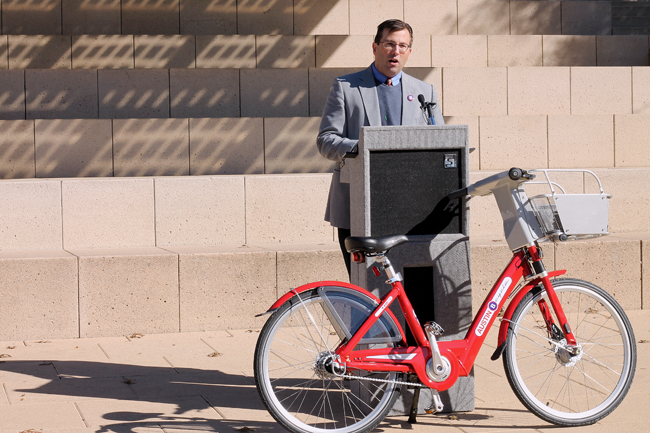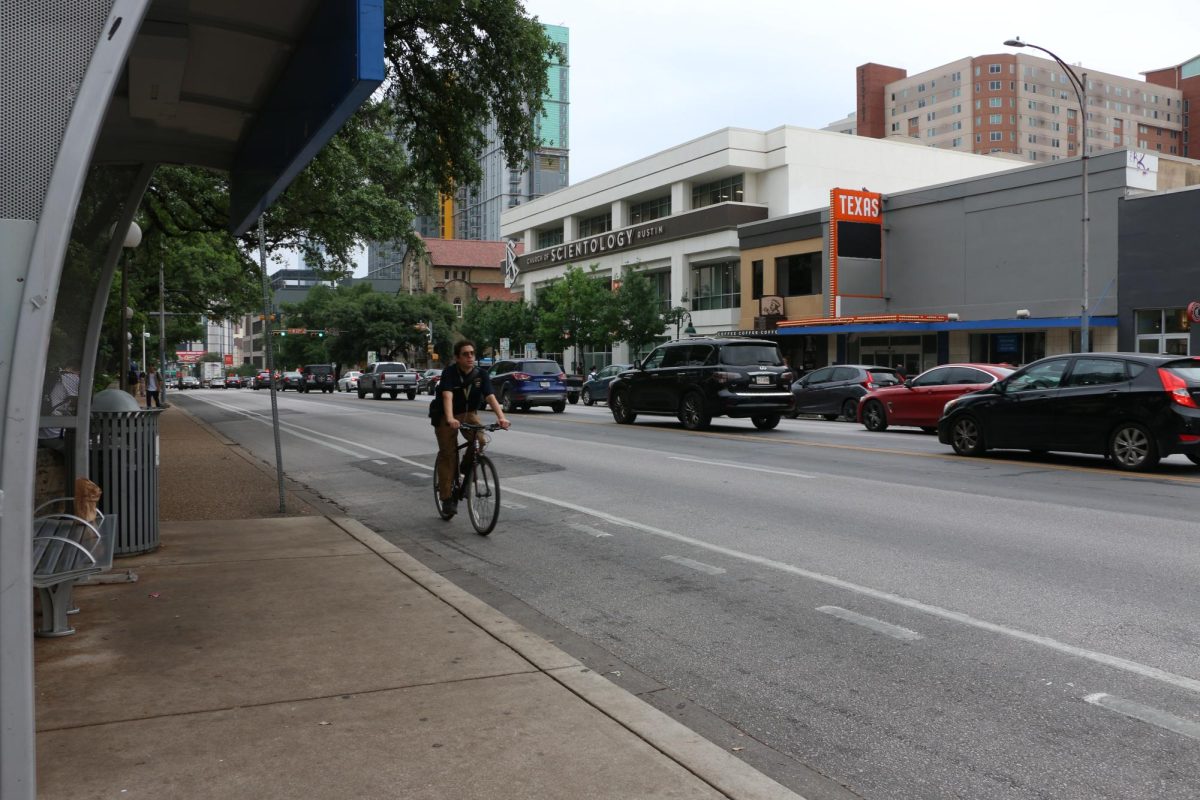City officials announced Wednesday that the city will launch its much-awaited bike sharing program on Dec. 21, though none of the initial locations will be on the UT campus.
The initiative will allow people to temporarily rent out bikes — similar to a ZipCar or Car2Go model — and is intended to reduce traffic downtown.
“There are many top 10 lists we like being on, but being a top ranked city for traffic problems is a real concern,” city councilman Chris Riley said. “Traffic issues have a direct impact on the livability of our city, and it has become clear that to protect our quality of life, we need to provide more transportation options for our community.”
The program, which will include 400 bikes at 40 stations by March, does not currently offer a discount for University students, said Elliott McFadden, Austin B-Cycle executive director.
“We have not had any further discussion yet with the University of Texas about student pricing, so we won’t have anything on that for a while,” McFadden said.
Because the system’s stations are focused on the downtown area, Riley said he wants to increase its accessibility to students.
“I’d love to find ways to make the system more convenient for UT students,” Riley said. “We’ll be continuing to explore those possibilities, but in the meantime, for any UT student who wants to connect with the network, there will be stations not too far from [the University].”
To use Austin’s $2 million bike sharing program, which is part of the B-Cycle network, one must purchase a daily pass, a weekly pass or an annual membership. A daily pass has an initial $8 fee, which includes the first half hour of the bike’s usage, and each additional half hour costs $4. A weekly pass costs $25, and an annual membership costs $80.
The first 11 stations will be downtown along Congress as well as around the Convention Center and Whole Foods, McFadden said. The additional 29 stations are scheduled to be installed by March 1.
None of the initial 40 stations will be on campus, but there will be some stations on the Drag and possibly one near the Blanton Museum of Art, McFadden said.
Craig Staley, Austin B-Cycle board chair, said in other cities with bike sharing systems, 30 to 40 percent of bike share rentals replace a car trip.
“Together through our public-private partnership, we have created a transit option for Austin without touching our local tax base,” Staley said.
“We’re talking about a real impact on congestion in our city,” Staley said. “If each bike is ridden just once a day, that is a staggering 45,000 car trips that will be replaced each year.”
Students at Austin Community College, a sponsor of the program , will receive a discount, McFadden said.
The initial program is sponsored by 12 businesses — including C3 Presents, Capital Metropolitan Transportation Agency and Whole Foods Market — who have each contributed $50,000 to the initial startup fund, McFadden said.
McFadden said user funds will supplement sponsorships to fund the program.
“The system in Washington, D.C., which is now in its third year of operations, is now sustainable just on membership fees,” McFadden said. “That’s certainly our long term goal, but at least for the first few years, we’ll need to partner with local organizations.”
Riley said the program is a necessary component of Austin’s transportation infrastructure because the city is growing so quickly.
“[We] simply don’t have the room to add more roads,” Riley said. “Instead we have to be smarter in the way we enable people to get from point A to point B.”





















